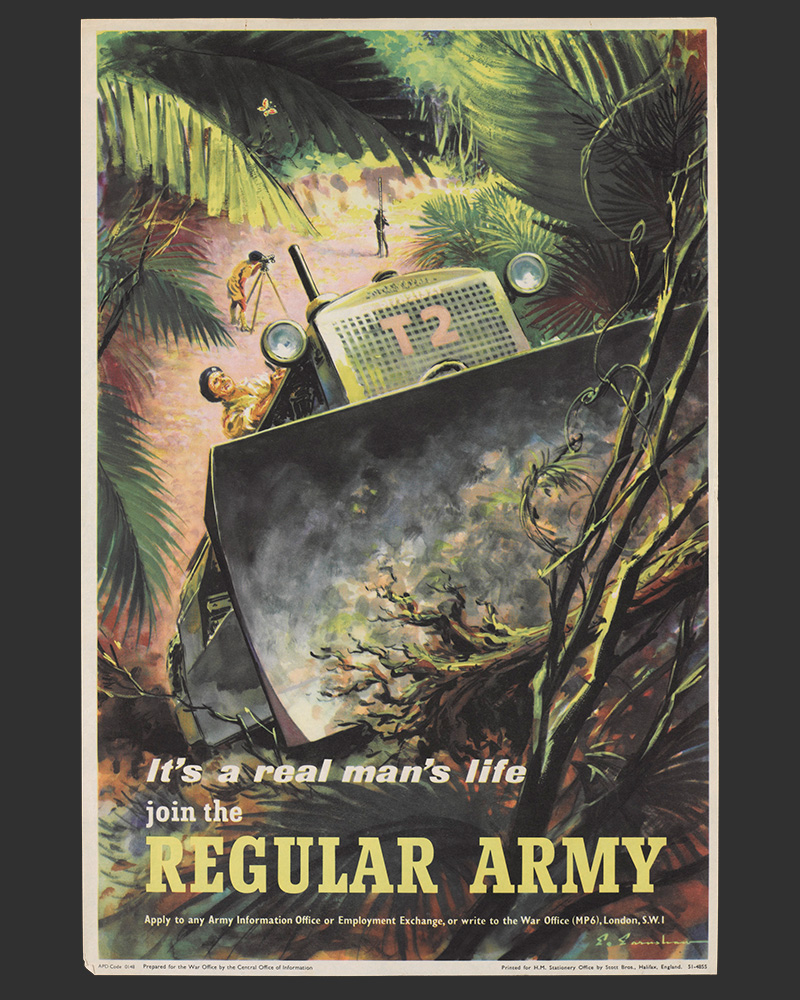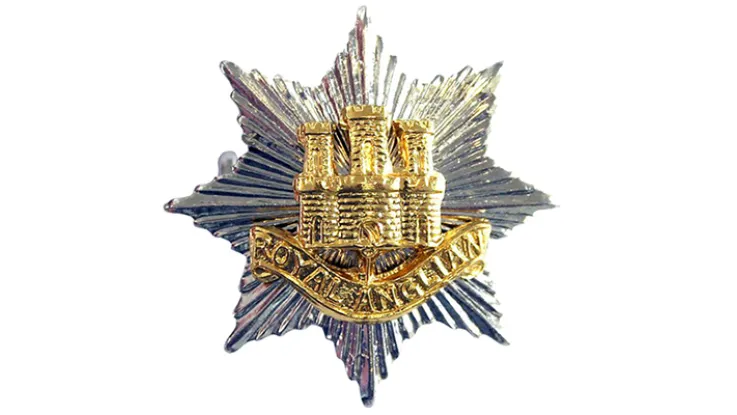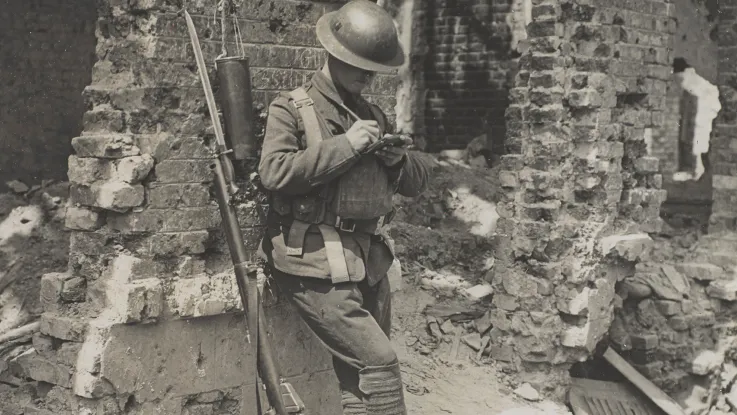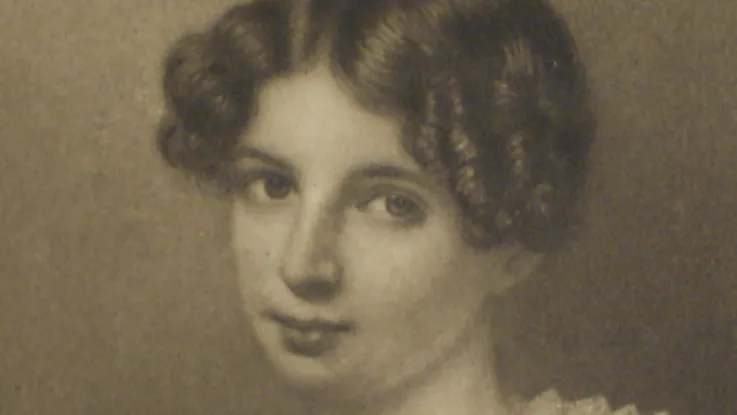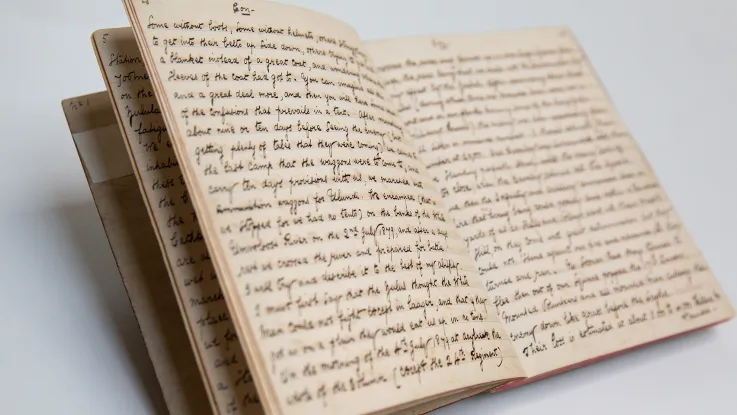
Lance Corporal Ethan Fagon, 1969
Windrush generation
Ethan Basil Fagon was born in 1942 in Clarendon, Jamaica, the youngest of ten children. As a boy, he witnessed the modest rewards earned by his hardworking father and resolved to seek a better life for himself.
Like many Jamaicans of his generation, Fagon made the bold decision to leave his homeland for the UK, embarking on his journey across the Atlantic in 1961. Workers were still in high demand in Britain as part of ongoing efforts to rebuild after the Second World War.
Those who came from the Caribbean and settled in the UK during this postwar era became known as the ‘Windrush Generation’ after the troopship ‘Empire Windrush’, which had transported one of the first large groups of West Indians to England in 1948.
Joining up
When he first arrived in England, Fagon lived with one of his brothers and found work in a shoe factory in Irchester, Northamptonshire. However, he had long harboured a desire to undertake military service.
When travelling to work one day, he and a friend saw an Army recruiting poster and decided to join up.
A time of change
At the time Fagon joined, the British Army was in transition. National Service gradually drew to an end between 1957 and 1963, radically reducing the number of personnel. This resulted in a period of reorganisation that brought an end to many of the county regiments which had characterised the Army for much of the preceding century.
On his enlistment in 1961, Fagon joined the short-lived 2nd East Anglian Regiment (The Duchess of Gloucester’s Own Royal Lincolnshire and Northamptonshire). In September 1964, this became the 2nd Battalion of the Royal Anglian Regiment, a new ‘large’ formation encompassing several old county regiments from the Midlands and East of England. The 2nd Royal Anglians would be Fagon's home for the remainder of his service career.
Mischief maker
During training at Gibraltar Barracks, Bury St Edmunds, and at Tidworth Camp, Wiltshire, Fagon made an impression upon his superiors and gained a reputation as a practical joker. One of his favourite tricks was to tamper with his comrades' folding beds, replacing a metal support pin with a matchstick so that they would collapse when used.
This mischievous spirit continued throughout his service, with his last commanding officers telling him: ‘Fagon - you’re a character we’ll never forget.’

Ethan Fagon, 2nd Battalion, The Royal Anglian Regiment, c1964
Confronting prejudice
Like many Black soldiers of this era, Fagon encountered racial prejudice. Given his self-acknowledged fiery temper, this sometimes landed him in trouble.
One unpleasant incident happened during a training exercise, when a fellow soldier tried to make him put on extra camouflage paint, saying he needed it to prevent his face from shining. This escalated into a fraught situation that was only diffused by the prompt intervention of their sergeant.
Fagon was clearly ready and able to stand up for himself. But he was also fortunate to have close comrades who would look out for him. These included several senior non-commissioned officers (NCOs), one of whom gave him the affectionate nickname ‘Starlight’ because he used to light candles around his bed at night.
‘During my Army career, somewhere along the line I had a guardian angel or two... and I was feisty – I would challenge anybody even if I got whipped.’Ethan Fagon reflecting on his good fortune and hot temper during his Army service — 2008
Germany
After completing his training, Fagon was posted to Osnabrück in West Germany. This would be the first of three tours that he would undertake with the British Army of the Rhine, the Army’s most significant military commitment during the Cold War (1945-89).
The tour lasted two years, during which time Fagon was promoted to lance corporal and switched from an infantry to an administrative role. It was also here, in 1962, that the 2nd East Anglian Regiment was presented with its Regimental Colours, a key moment in its brief lifespan.
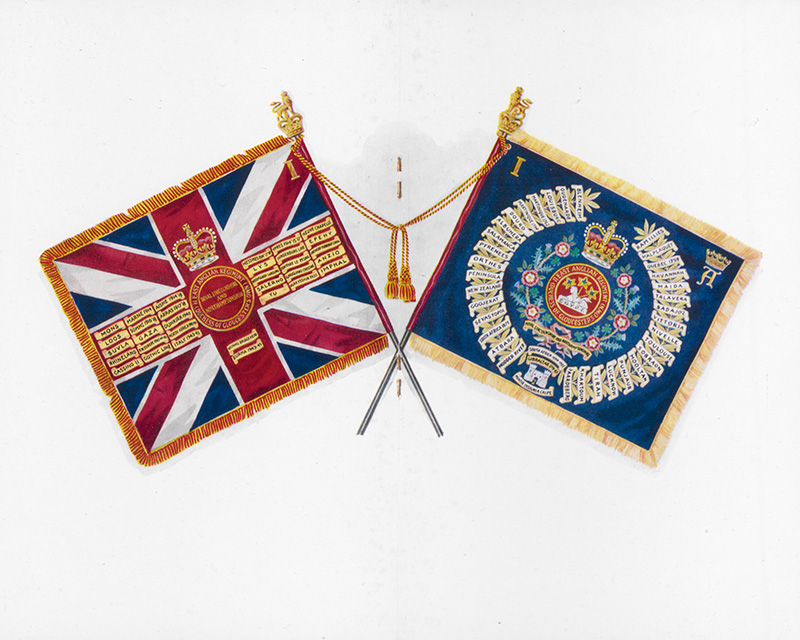
Central pages from a programme for the presentation of colours to the 2nd East Anglian Regiment, Osnabrück, 1 June 1962
Cyprus
Just a few months after its return from Germany, Fagon's battalion was deployed to Cyprus, where it would spend the next three years.
This was a hazardous posting. In the previous decade, a Cypriot nationalist uprising had challenged British rule, culminating in independence in 1960. However, the island remained divided between hostile Greek and Turkish communities. Recent clashes between the two had resulted in the deployment of a multinational United Nations (UN) peacekeeping force.
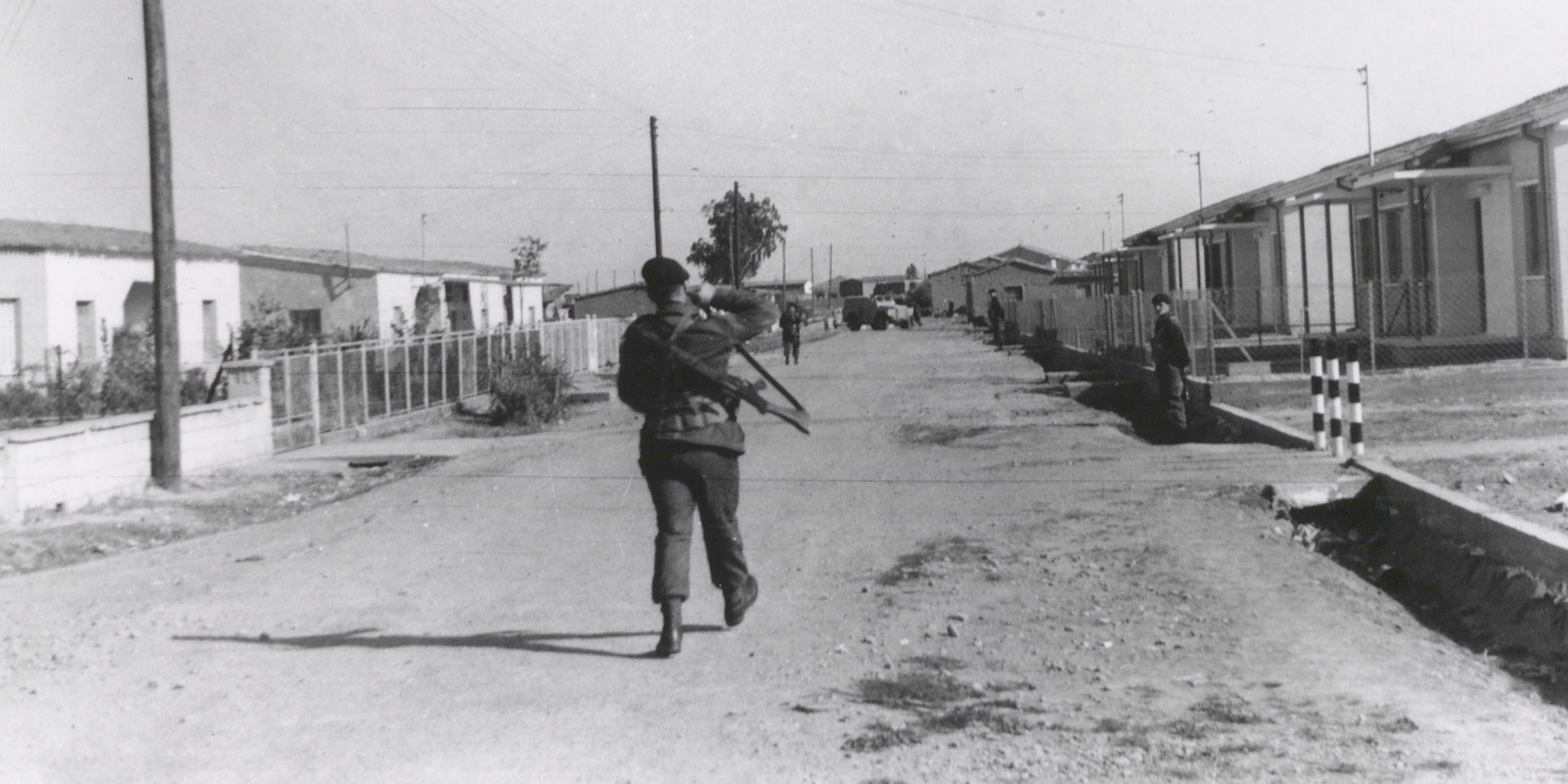
British troops of the UN peacekeeping force patrolling the ‘Green Line’ between the Greek and Turkish communities, Nicosia, 1964
Garrison duty
The 2nd Royal Anglians did not form part of this UN force. Instead, they were deployed to protect the Eastern Sovereign Base Area of Dhekelia, one of the two British territorial possessions that remained on the island.
Nonetheless, Fagon and his comrades observed the fraught relations and sporadic tit-for-tat violence between the Greeks and the Turks, and were very aware that the situation on the island remained tense and dangerous.
Against this backdrop, the British garrison troops were on a high state of alert and undertook long, tedious hours of guard duty.
‘We didn’t take part, I mean we were piggy in the middle. The Greeks are over here, the Turks are over there - they are shooting at them, they are shooting at them, we’re pig in the middle, you know bullets flying... there’s nothing you could do really.’Ethan Fagon reflecting on the situation in Cyprus during his posting there — 2008
Travel and leisure
As the tensions in Cyprus gradually eased, the troops there had greater freedom to undertake training, play sports and even enjoy leisure and travel. Fagon and his comrades took the opportunity to explore the island’s mountainous interior, as well as relaxing at the many beaches and taverns.
Inspired by the Biblical stories he had heard as a child, Fagon also took the opportunity to visit the nearby countries of the Middle East. It was while travelling in Jordan that he met the woman who would later become his wife.
Battling red-tape, Fagon succeeded in having his new sweetheart accompany him back to Cyprus, where she became pregnant with their first child. The couple later made a home together in Ipswich, Suffolk.
Northern Ireland
Between 1970 and 1983, Fagon undertook six tours of Northern Ireland. This was during the height of the period of terrorist violence and civil strife known as ‘The Troubles’.
These were very challenging deployments, with the British Army attempting to keep the peace between hostile communities and counter an elusive foe.

Ethan Fagon (right) on duty in Northern Ireland, c1970-83
Storeman
For some of this time, Fagon served at Fort George in Londonderry, where he developed a specialism as a storeman. He believed he had an aptitude for this role, but he was critical of some of his workmates.
He recalled his annoyance at one colleague who had tried to pass off Fagon's ideas for reform as his own.
He also remembered an incident when a co-worker misplaced a tea urn – an important item that was sure to be missed. Ever resourceful, Fagon concocted a scheme to get them out of trouble.
Bringing a different urn to a site where equipment exchanges were made, Fagon allowed an officer to check off its receipt. He then distracted the officer with the gift of a bottle of whisky before putting the urn back on his own lorry, thereby making up the discrepancy in his own inventory.

Ethan Fagon, Northern Ireland, c1970-83
On patrol
As an infantry section commander, Fagon also undertook extensive patrolling in the towns and countryside of Northern Ireland. In this role, he bore witness to both the violence and the difficult relations with local people that characterised service in this bitterly divided community.
During this time, he experienced several close shaves, including coming under fire while on patrol in the Creggan area of Londonderry, and being in close proximity to several bomb blasts.

Ethan Fagon (right) and other members of 2nd Battalion, the Royal Anglian Regiment, wearing internal security equipment, Northern Ireland, c1970-83
Tragedy and comedy
During his service in Northern Ireland, Fagon never saw anyone get hit, but he had many comrades who were killed or injured, or who suffered mental breakdowns.
An incident that particularly stuck in his mind was a bomb blast in October 1973 that blinded and maimed Captain Ray Hazan. Reflecting on this tragedy, he described Hazan as ‘a man with a future... a nice, nice guy’.
In such a stressful environment, Fagon believed that a sense of humour was vital for mental survival. On one of the occasions when his unit was in the vicinity of an explosion, a telephone propelled from a nearby building landed in the street. Fagon lightened the mood by picking it up and presenting it to his officer, saying: ‘It’s for you, sir.’
‘You see a lot of tragedies, you know what I mean. There was one guy who told them he was going to kill himself, nobody take any notice of him. The next thing you know he did kill himself... I’ve seen grown men cry, want to go home to their mum, things like that.’Ethan Fagon recalling the toll of military service in Northern Ireland on soldiers' mental health — 2008
Achievement
Establishing himself as a first-class infantry soldier and a highly skilled marksman, Fagon played his full part in the sporting life of his regiment.
One of his most notable achievements came in 1969, when he formed part of a team from 9 Platoon, C Company, which won the prestigious Grierson Shield.
This was a demanding competition, which encompassed shooting, a night ambush, together with fitness and stamina tests, including long marches with full pack and traversing an assault course.

Lance Corporal Ethan Fagon receiving his tankard trophy from General Sir Michael Carver, as part of the team which won the Grierson Shield, Infantry Platoon Challenge Competition, 1969

Lance Corporal Ethan Fagon (seated front centre) and the rest of the winning team pictured with the Grierson Shield and their individual tankard trophies, 1969
Unsporting behaviour
Fagon also enjoyed hockey. However, his competitive nature sometimes got the better of his sense of sportsmanship.
He recalled one occasion during a tournament in Cyprus when he deliberately hit a sergeant on the ankle to force him off the pitch. This sergeant happened to be on Fagon's own team, but his poor performance was costing them the game.
Worldwide service
In addition to operational deployments, Fagon undertook other postings in locations all over the world, including Libya, Kenya, Malaysia, Gibraltar and Denmark. Some of these were training exercises, designed to hone the skills required for operating in difficult terrain.
Fagon particularly enjoyed service in Malaysia, where he undertook jungle warfare training in 1968. The food, culture and lifestyle there suited him well and reminded him of home.
Desert warfare training in Libya was also memorable, with its challenges of navigation and extremes of hot days and cold nights.

Lance Corporal Ethan Fagon, Malaysia, 1968
Appalling waste
Fagon recalled another incident, this time from his service in Kenya in 1968, which particularly rankled with him.
When the battalion was due to move from a remote location, it had to leave behind a large consignment of food and fuel which had been airdropped. Instead of giving it to the local people, as he had been implored to do, the commanding officer ordered all the supplies to be thrown into a pit and burned.
Fagon was outraged at this, finding the sight of impoverished children scavenging among the remains particularly upsetting.

Air despatch over Kenya, c1950-69
A bittersweet experience
After completing a full term of engagement of 22 years, Fagon left the Army in 1983 with mixed feelings.
He came to believe that the colour of his skin had affected his career progression, and that he deserved to have advanced beyond the rank of corporal during his long service. However, he was proud of his achievements and acknowledged that the Army had shaped his character for the better, providing discipline which helped him to curb his temper.
Fagon had also enjoyed the camaraderie of Army life. He made several enduring friendships and was always glad to meet up with old comrades.
Post-service problems
Like many veterans, Fagon struggled to adjust to civilian life. He had difficulty finding work and getting retrained, and he felt that the Army could have provided more support with this transition. In later life, he was also dogged by health issues.
Despite these challenges, Fagon always retained his pride and sense of humour. He eventually settled in East Dulwich, London, where he died in 2018.
Access to the archive
The National Army Museum provides public access to its library and archival collections via the Templer Study Centre. Over the coming weeks and months, we will be sharing more stories across our website and social media channels, highlighting some of the valuable personal insights these collections hold.

